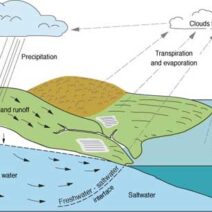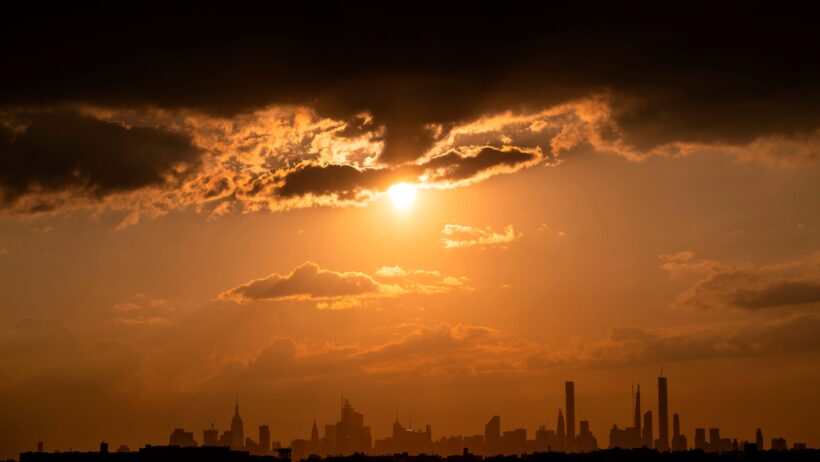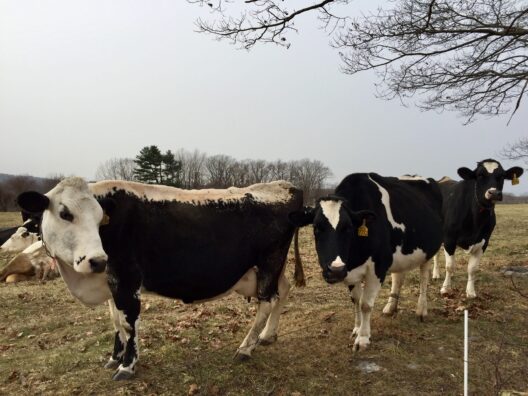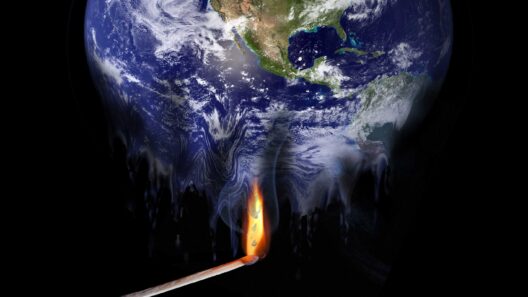As we stand at a precarious crossroads in the unfolding narrative of human existence, the term “unlivable planet” reverberates with a haunting resonance. Imagining a world where the ecological balance has been irrevocably disrupted elicits emotions that are as complex as the web of interdependencies that sustain life itself. The towering specter of global warming looms large, casting a long shadow over our climate and our future, leaving us to ponder: how long until this phenomenon takes over our planet?
Global warming, the gradual ascension of Earth’s average temperature, is not merely a statistic to be bandied about during environmental summits; it is an existential threat. The accumulation of greenhouse gases in the atmosphere functions akin to a thickening quilt wrapped too tightly around a fragile body. Carbon dioxide and methane, products of our industrial tenacity and agricultural practices, trap heat, initiating a chain reaction that threatens every biome, species, and ecosystem.
The consequences of unchecked global warming are manifold. A poignant metaphor to illustrate this phenomenon is that of the “boiling frog.” If a frog is placed in water that is gradually heated, it will not realize the danger until it is too late. Similarly, humanity has been slowly acclimatizing itself to rising temperatures, shifting weather patterns, and increasingly severe natural disasters without fully grasping the perilous depths of our situation.
Consider the statistics: September 2019 was heralded as the hottest September on record. This servile acknowledgment of physical extremes is just the tip of an insidious iceberg. Glaciers, those ancient sentinels of our planet’s climate, are receding at a breathtaking pace. The Arctic, once a realm of pristine ice, is transforming into a treacherous playground of thawing permafrost, which threatens to unleash trapped methane, further exacerbating the greenhouse effect.
Rising sea levels are an ominous portent that deserves our unwavering attention. Coastal cities from Miami to Mumbai are facing an existential threat, vulnerable to the relentless encroachment of the ocean. As the waters rise, so too does the potential for displacement, sociopolitical strife, and catastrophic resource scarcity. We are witnessing the creation of climate refugees, individuals and families forced to abandon their homes due to the ceaseless encroachment of water—a tragedy underscored by the stark reality that, when land disappears, so too does culture, history, and identity.
There is an undeniable connection between human actions and environmental repercussions, the duality of cause and effect manifesting in ways both overt and understated. Deforestation, the clearing of rich and vibrant forests for agriculture and urban sprawl, depletes natural carbon sinks while simultaneously releasing stored CO2, a twisted paradox that reflects humanity’s penchant for short-sightedness. As flora vanishes, so too does biodiversity—the intricate tapestry that has taken millions of years to weave. The extinction of various species is a lose-lose scenario, echoing a chilling notion: the loss of any species impairs the resilience of our planetary ecosystem.
The warming of our planet presents unprecedented challenges to agricultural systems as well. Droughts, floods, and erratic weather patterns are not mere inconveniences; they jeopardize food security on a global scale. With the world population projected to reach nearly 10 billion by 2050, the relentless demand for sustenance will only intensify. As optimal growing regions wane, food prices are likely to surge, exacerbating inequality in access to resources and further fracturing the fragile social fabric.
In the face of this impending crisis, mitigation strategies must become the cornerstone of our environmental ethos. Transitioning from fossil fuels to renewable energy sources such as solar, wind, and geothermal must become imperative. Envision a world powered not by the combustion of ancient carbon, but one that basks in the lush potential of the sun’s rays. The shift toward sustainable practices can be a catalyst for a green revolution, generating economic opportunities while nurturing the planet.
While individual actions—such as reducing waste, adopting plant-based diets, and supporting environmentally conscious businesses—are important, collective action amplifies these efforts. Governments, organizations, and communities must collaborate on initiatives designed to preemptively combat climate change. Each policy and regulation regarding emissions, waste management, and conservation can be viewed as a brick in the fortification against encroaching calamity.
The future is not a predetermined artifact; it is a malleable construct shaped by our choices today. It’s a poignant realization: every small step toward sustainability may resonate exponentially through time. The true battle against global warming is not solely about reducing emissions; it is about recognizing our interconnectedness with the ecosystems that cradle us. The realization must seep into the collective consciousness—a profound awakening to our role as stewards, not just consumers.
The question looms large: how much time do we have until global warming renders our planet unlivable? The truth is that while the timeline may remain uncertain, our window of opportunity narrows with each passing moment. We stand on the brink of an era that demands resilience, adaptability, and most importantly, unwavering commitment to safeguarding the only home we possess. Our actions today will sculpt the world of tomorrow, clarifying a singular truth: an unlivable planet is not an abstract concept but a potential reality we must strive to prevent.








